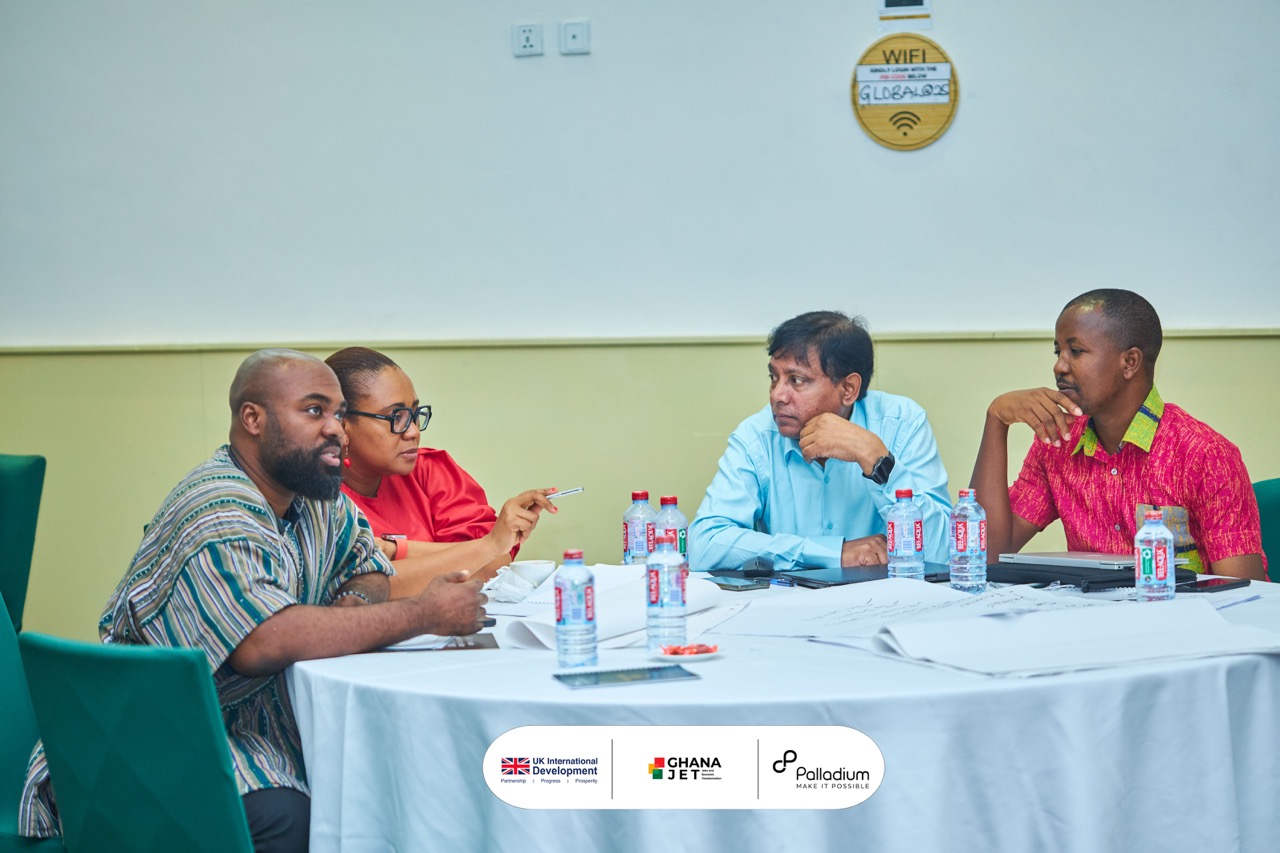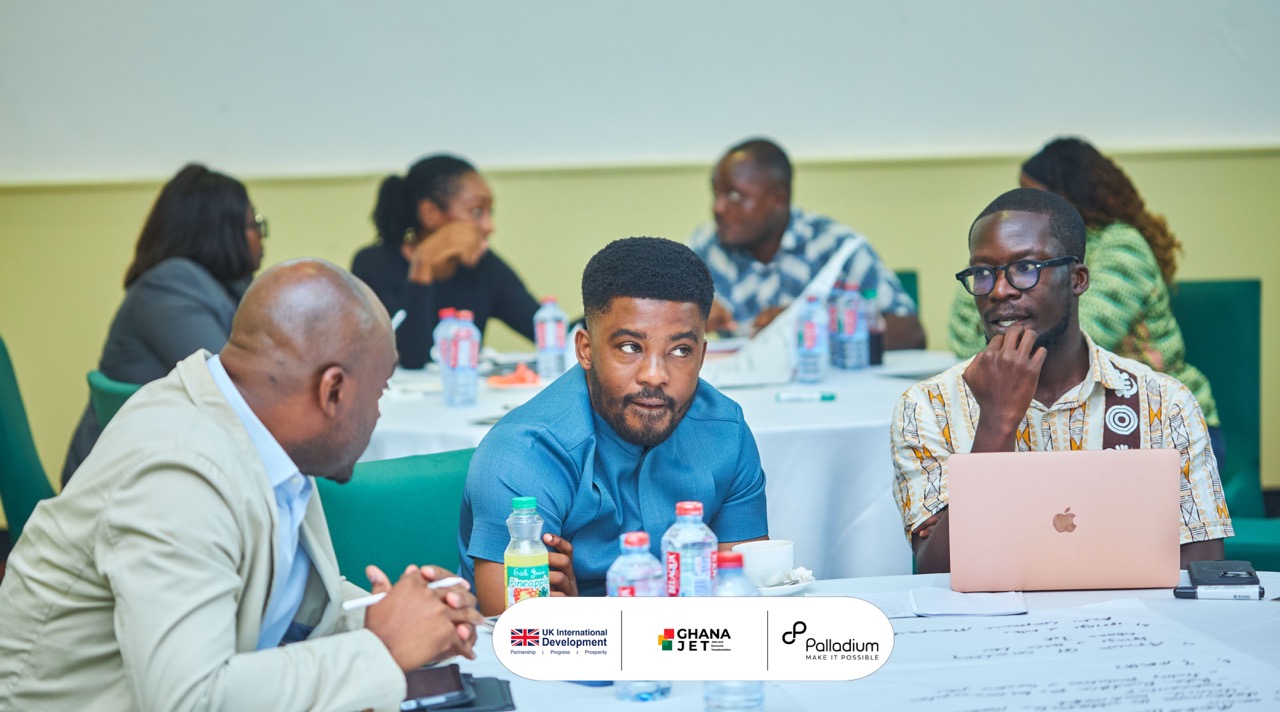
Understanding change is just as significant as achieving it. In development programmes, tracking progress is not merely about counting numbers—it’s about uncovering the deeper story of transformation, learning from it, and refining our approach to maximise impact. The Ghana Jobs and Economic Transformation (JET) Programme conducted a participatory Outcome Harvesting (OH) session on March 5th, bringing together partners across the programme to collectively assess, reflect, and learn from the change we drive.
Outcome Harvesting: More Than Just a Monitoring Tool
Outcome Harvesting is more than an evaluation exercise; it is a strategic learning tool. By embedding this approach into our programme, we are ensuring accountability and fostering adaptive learning—making the Ghana JET programme’s impact more sustainable and responsive to the realities on the ground. Unlike traditional monitoring and evaluation methods, OH goes beyond predetermined indicators to explore unintended outcomes and capture change’s ‘how’ and ‘why’. For a programme like Ghana JET, which is catalysing frontier shifts in key manufacturing sectors such as automotive, pharmaceuticals, and textiles, OH provides an invaluable mechanism to understand the ripple effects of our interventions. The programme’s approach to OH included a highly participatory session that engaged partners in identifying, analysing, and documenting key changes within their respective sectors. Participants shared insights on progress, challenges, and emerging opportunities through facilitated discussions.
Beyond immediate feedback, an after-action review will assess the long-term impact of the training on how partners track and understand sectoral change.

Learning from Change, Driving Future Success
The Outcome Harvesting session allowed partners to reflect on the broader impact of their work, strengthening collaboration and creating a shared understanding of what is working—and what needs to be improved. Participants highlighted key lessons on Programme implementation, regulatory processes, and investor engagement, which will shape the next phase of the programme’s interventions. As we move forward, the insights from this session will inform our strategies, ensuring we continue driving meaningful economic transformation. With the right tools, partnerships, and a commitment to continuous learning, Ghana’s path to industrialisation is not just a vision but a reality in motion.
